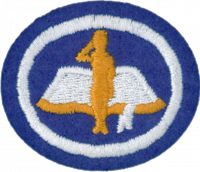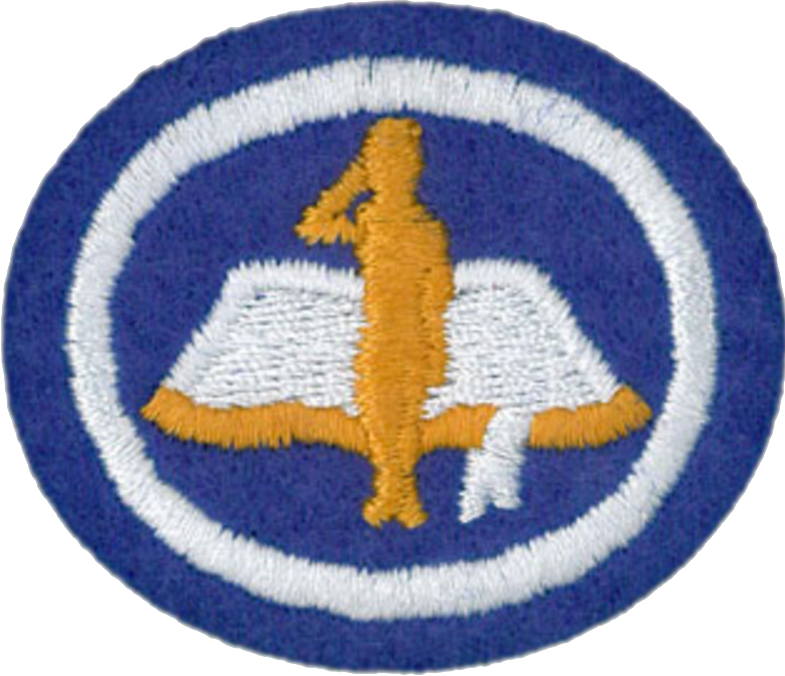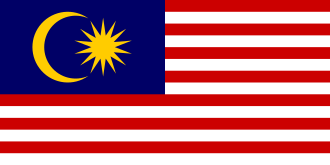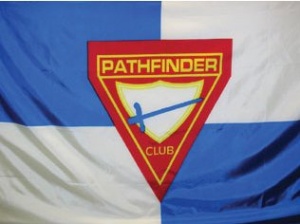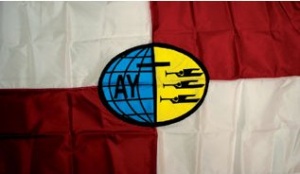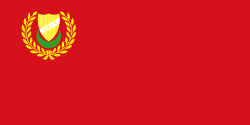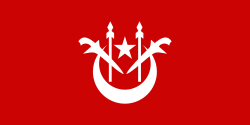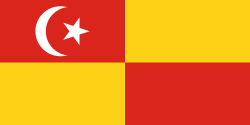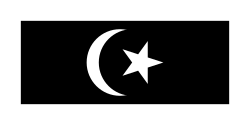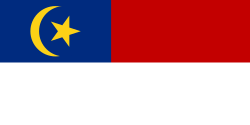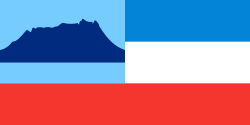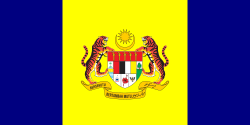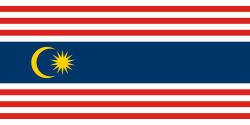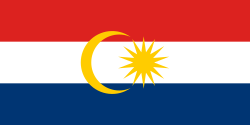Difference between revisions of "AY Honors/Christian Citizenship/Answer Key 9"
m (Jomegat moved page AY Honor Christian Citizenship Answer Key for Canada used by General Conference to AY Honor Christian Citizenship Answer Key for Malaysia used by General Conference without leaving a redirect) |
|||
| Line 458: | Line 458: | ||
==References== | ==References== | ||
| − | |||
<noinclude></translate></noinclude> | <noinclude></translate></noinclude> | ||
| + | |||
| + | [[Category:AY Honors/noindex{{GetLangSuffix}}|{{SUBPAGENAME}}]] | ||
| + | |||
<section end="Body" /> | <section end="Body" /> | ||
| + | |||
{{CloseHonorPage}} | {{CloseHonorPage}} | ||
Latest revision as of 18:36, 4 October 2021
1
Current state/provincial flags
- Malaysian State's Flag, Emblem & Song
Sultanate of Kedah (Alor Star) - The state flag features a red crescent moon below a green shield and is enveloped by a yellow wreath against a red background. Red is the traditional colour of the state and also signifies prosperity while the crescent moon is symbolic of Islam. The shield symbolises the Sultan of the state as the protector and guardian of his subjects.
Sultanate of Pahang (Kuantan) - The flag of Pahang consists of a simple horizontal bicolour flag with equally proportionate bands of white on the upper half and black on the lower half. Black represents the colour of the Bendahara’s authority who once upon a time ruled the state. White represents the monarchy. Additional white above the black means that the State of Pahang is a state of sovereign monarchy and has its own Sultan. It also means that the state has special privileges, laws, customs, and codes of conduct as well as specific Sultan rights as a sovereign, monarchical state in Malaysia.
Sultanate of Perak (Ipoh) - The State Flag is divided into three equal horizontal stripes. The three colours represent the three branches of the royal family whereby the throne is shared in rotation. The white stripe symbolises the Sultan while the yellow stripe is that of the Raja Muda. The black stripe represents the Raja DiHilir.
Sultanate of Selangor (Shah Alam) - The flag is divided into four equal-sized sections. The red sections denote the courage of the people of Selangor while the yellow sections are representative of the royal status of the head of state, the Sultan. The crescent moon and star on the upper left section are the symbols of Islam, the official religion of the state.
Elective Monarchy of Negeri Sembilan (Seremban) - The yellow field of the flag represents the State Ruler. The canton in the top left-hand corner has two colours which divide it diagonally. The colour red represents the rakyat (citizens); and black is the symbol of the four undangs (traditional chiefs).
Kingdom of Perlis (Kangar) - The top half of the flag, which is yellow in colour, represents the royal status of the Ruler of Perlis. The bottom half of the flag, on the other hand, is blue and stands for the people of Perlis. The two colours lay close and in tangent with each other, reflecting the cordial and close relationship between the Ruler and his people.
Pulau Pinang (George Town) - The tricolour flag features vertical stripes of equal width with an areca nut tree on the white centre panel. Light blue represents the sea surrounding the island; white stands for its serenity and yellow signifies prosperity. Pulau Pinang (Penang Island) derives its name from the arecanut tree, called pokok pinang in Malay.
Sabah (Kota Kinabalu) - The red stripe represents courage and the willingness to sacrifice for the state of Sabah. White is the colour of purity while dark blue is the colour of peace and prosperity. The light blue denotes Sabah's status as a young state. The silhouette of Mount Kinabalu is the symbol of the unity of the people.
Sarawak (Kuching) - Red symbolises the courage, confidence and sacrifices of the people in their efforts to achieve and maintain progress in the state. Yellow represents the supremacy of the law and the unity found amongst Sarawak's diverse races. Black denotes the abundant natural resources of Sarawak: petroleum and timber. The yellow nine-pointed star represents the nine divisions and the aspirations of the people to improve their quality of life.
- Federal Territories of Malaysia
Federal Territory of Putrajaya - The Putrajaya flag have the Malaysian Coat of Arms in middle stating the Government of Malaysia as the ruler of the state and the yellow background meaning the royal color of the rulers and the blue on both end of the flag meaning the unity of the people to the state ruler and the government.
Federal Territory of Kuala Lumpur - The Kuala Lumpur Federal Territory flag comprises 14 alternating white and red stripes divided equally by a field of dark blue. The stripes represent the 13 states and the Federal Territory in the Malaysian Federation. The crescent moon and star are the symbols of Islam, the official religion of the country; dark blue represents the ethnic diversity of Kuala Lumpur. The colour white signifies purity and cleanliness, while red stands for courage, and yellow is the colour of peace and prosperity.
Federal Territory of Labuan (Bandar Labuan) - Labuan has had its own flag since 1990. For eight years prior to this, Labuan used the Malaysian flag. The Labuan flag consists of three alternating stripes of red, white and blue, the colours signifying Labuan as a Malaysian Federal Territory. The red also denotes courage, the white purity and the blue unity. The crescent moon is the symbol of Islam and the 14-pointed star represents the states of Malaysia.
2
- a. Camp out/camporee
- b. Fair
- c. Pathfinder Day program
- d. Parade
3
Folding
Flag Protocol
4
Negaraku (Malay)
- Negaraku, tanah tumpahnya darahku,
- Rakyat hidup, bersatu dan maju,
- Rahmat bahagia, Tuhan kurniakan,
- Raja kita, selamat bertakhta.
- Rahmat bahagia, Tuhan kurniakan,
- Raja kita, selamat bertakhta.
History of 'Negaraku' song
At the time of independence, each of the eleven States of Malaya that made up the Federation had their own anthem, but there was no anthem for the Federation as a whole. Tunku Abdul Rahman, at the time the Chief Minister and Minister for Home Affairs, organized and presided over a committee for the purpose of choosing a suitable national anthem. On his suggestion, a worldwide competition was launched. 514 entries were received from all over the world. None were deemed suitable.
Next the committee decided to invite selected composers of international repute to submit compositions for consideration. The composers chosen were Benjamin Britten, Sir William Walton who had recently composed the march for Queen Elizabeth II's coronation, the American opera composer Gian Carlo Menotti and Zubir Said, who later composed the National Anthem of Singapore. They were all turned down too.
The Committee then turned to the Perak State Anthem. On August 5 1957 it was selected on account of the "traditional flavour" of its melody. New lyrics for the National Anthem were written jointly by the Panel of Judges— with the Tunku himself playing the leading role. At the time this melody was, while still the State Anthem of Perak, Allah Lanjutkan Usia Sultan.
The song had been very popular on the island of Mahé in the Seychelles. where the Sultan of Perak had formerly been living in exile. He heard it at a public band concert on the island, a song to a popular French melody, originally composed by the lyricist Pierre-Jean de Béranger (1780-1857), who was born and died in Paris. When a member of the Perak royal family was invited to a reception in Europe, he was asked what his state anthem was. Realizing that his state did not in fact possess an anthem, he, in order not to appear backward in front of his hosts, proceeded to hum the aforementioned tune. Thus was an anthem born.
The song was later introduced into an Indonesian Bangsawan (Opera), which was performing in Singapore. In no time at all, the melody became extremely popular and was given the name Terang Bulan. Aside from its dignity and prestige as the Perak State Anthem, the song became a Malayan "evergreen", playing at parties, in cabarets and sung by almost everybody in the 1920s and 1930s. (Today, of course, since independence, it is not played as a popular melody, and any such use is proscribed by statute.)
The anthem was given a new quick march beat in 1992, which proved unpopular. Some Malaysians have gone as far as to say that the altered tempo resembled circus music, and was the subject of much derision. In July, 2003 it was reported in the Malaysian press that the anthem would be rearranged for the second time and the title and lyric would be changed from Negaraku to Malaysiaku. There was a public outcry of dismay and the change of name was scrapped, but the anthem was re-arranged and returned to the pre-1992 pace by composer Wah Idris.
5
As in the MALAYSIAN FEDERAL CONSTITUTION
PART II - FUNDAMENTAL LIBERTIES
Article 5. Liberty of the person.
(1) No person shall be deprived of his life or personal liberty, save in accordance with law.
(2) Where complaint is made to a High Court or any judge thereof that a person is being unlawfully detained the court shall inquire into the complaint and, unless satisfied that the detention is lawful, shall order him to be produced before the court and release him.
(3) Where a person is arrested he shall be informed as soon as may be of the grounds of his arrest and shall be allowed to consult and be defended by a legal practitioner of his choice.
(4) Where a person is arrested and not released he shall without unreasonable delay, and in any case within twenty-four hours (excluding the time of any necessary journey) be produced before a magistrate and shall not be further detained in custody without the magistrate's authority: a) Provided that this Clause shall not apply to the arrest or detention of any person under the existing law relating to restricted residence, and all the provisions of this Clause shall be deemed to have been an integral part of this Article as from Merdeka Day: b) Provided further that in its application to a person, other than a citizen, who is arrested or detained under the law relating to immigration, this Clause shall be read as if there were substituted for the words "without unreasonable delay, and in any case within twenty-four hours (excluding the time of any necessary journey)" the words "within fourteen days": c) And provided further that in the case of an arrest for an offence which is triable by a Syariah court, references in this Clause to a magistrate shall be construed as including references to a judge of a Syariah court.
(5) Clauses (3) and (4) do not apply to an enemy alien.
Article 6. Slavery and forced labour prohibited.
(1) No person shall be held in slavery.
(2) All forms of forced labour are prohibited, but Parliament may by law provide for compulsory service for national purposes.
(3) Work or service required from any person as a consequence of a conviction or a finding of guilt in a court of law shall not be taken to be forced labour within the meaning of this Article, provided that such work or service is carried out under the supervision and control of a public authority.
(4) Where by any written law the whole or any part of the functions of any public authority is to be carried on by another public authority, for the purpose of enabling those functions to be performed the employees of the first mentioned public authority shall be bound to serve the second mentioned public authority, and their service with the second mentioned public authority shall not be taken to be forced labour within the meaning of this Article, and no such employee shall be entitled to demand any right from either the first mentioned or the second mentioned public authority by reason of the transfer of his employment.
Article 7. Protection against retrospective criminal laws and repeated trials
(1) No person shall be punished for an act or omission which was not punishable by law when it was done or made, and no person shall suffer greater punishment for an offence than was prescribed by law at the time it was committed.
(2) A person who has been acquitted or convicted of an offence shall not be tried again for the same offence except where the conviction or acquittal has been quashed and a retrial ordered by a court superior to that by which he was acquitted or convicted.
Article 8. Equality
(1) All persons are equal before the law and entitled to the equal protection of the law.
(2) Except as expressly authorized by this Constitution, there shall be no discrimination against citizens on the ground only of religion, race, descent or place of birth or gender in any law or in the appointment to any office or employment under a public authority or in the administration of any law relating to the acquisition, holding or disposition of property or the establishing or carrying on of any trade, business, profession, vocation or employment.
(3) There shall be no discrimination in favour of any person on the ground that he is a subject of the Ruler of any State.
(4) No public authority shall discriminate against any person on the ground that he is resident or carrying on business in any part of the Federation outside the jurisdiction of the authority.
(5) This Article does not invalidate or prohibit - (a) any provision regulating personal law; (b) any provision or practice restricting office or employment connected with the affairs of any religion, or of an institution managed by a group professing any religion, to persons professing that religion; (c) any provision for the protection, well-being or advancement of the aboriginal peoples of the Malay Peninsula (including the reservation of land) or the reservation to aborigines of a reasonable proportion of suitable positions in the public service; (d) any provision prescribing residence in a State or part of a State as a qualification for election or appointment to any authority having jurisdiction only in that State or part, or for voting in such an election; (e) any provision of a Constitution of a State, being or corresponding to a provision in force immediately before Merdeka Day; (f) any provision restricting enlistment in the Malay Regiment to Malays.
Article 9. Prohibition of banishment and freedom of movement.
(1) No citizen shall be banished or excluded from the Federation.
(2) Subject to Clause (3) and to any law relating to the security of the Federation or any part thereof, public order, public health, or the punishment of offenders, every citizen has the right to move freely throughout the Federation and to reside in any part thereof.
(3) So long as under this Constitution any other State is in a special position as compared with the States of Malaya, Parliament may by law impose restrictions, as between that State and other States, on the rights conferred by Clause (2) in respect of movement and residence.
Article 10. Freedom of speech, assembly and association.
(1) Subject to Clauses (2), (3) and (4) -
(a) every citizen has the right to freedom of speech and expression;
(b) all citizens have the right to assemble peaceably and without arms;
(c) all citizens have the right to form associations.
(2) Parliament may by law impose - (a) on the rights conferred by paragraph (a) of Clause (1),such restrictions as it deems necessary or expedient in the interest of the security of the Federation or any part thereof, friendly relations with other countries, public order or morality and restrictions designed to protect the privileges of Parliament or of any Legislative Assembly or to provide against contempt of court, defamation, or incitement to any offence; (b) on the right conferred by paragraph (b) of Clause (1), such restrictions as it deems necessary or expedient in the interest of the security of the Federation or any part thereof, or public order; (c) on the right conferred by paragraph (c) of Clause (1), such restrictions as it deems necessary or expedient in the interest of the security of the Federation or any part thereof, public order or morality.
(3) Restrictions on the right to form associations conferred by paragraph (c) of Clause (1) may also be imposed by any law relating to labour or education.
(4) In imposing restrictions in the interest of the security of the Federation or any part thereof or public order under Clause (2) (a), Parliament may pass law prohibiting the questioning of any matter, right, status, position, privilege, sovereignty or prerogative established or protected by the provisions of Part III, article 152, 153 or 181 otherwise than in relation to the implementation thereof as may be specified in such law.
Article 11. Freedom of religion.
(1) Every person has the right to profess and practice his religion and, subject to Clause (4), to propagate it.
(2) No person shall be compelled to pay any tax the proceeds of which are specially allocated in whole or in part for the purposes of a religion other than his own.
(3) Every religious group has the right - (a) to manage its own religious affairs; (b) to establish and maintain institutions for religious or charitable purposes; and (c) to acquire and own property and hold and administer it in accordance with law.
(4) State law and in respect of the Federal Territories of Kuala Lumpur, Labuan and Putrajaya, federal law may control or restrict the propagation of any religious doctrine or belief among persons professing the religion of Islam.
(5) This Article does not authorize any act contrary to any general law relating to public order, public health or morality.
Article 12. Rights in respect of education.
(1) Without prejudice to the generality of Article 8, there shall be no discrimination against any citizen on the grounds only of religion, race, descent or place of birth-
(a) in the administration of any educational institution maintained by a public authority, and, in particular, the admission of pupils or students or the payment of fees; or
(b) in providing out of the funds of a public authority financial aid for the maintenance or education of pupils or students in any educational institution (whether or not maintained by a public authority and whether within or outside the Federation).
(2) Every religious group has the right to establish and maintain institutions for the education of children in its own religion, and there shall be no discrimination on the ground only of religion in any law relating to such institutions or in the administration of any such law; but it shall be lawful for the Federation or a State to establish or maintain or assist in establishing or maintaining Islamic institutions or provide or assist in providing instruction in the religion of Islam and incur such expenditure as may be necessary for the purpose.
(3) No person shall be required to receive instruction in or take part in any ceremony or act of worship of a religion other than his own.
(4) For the purposes of Clause (3) the religion of a person under the age of eighteen years shall be decided by his parent or guardian.
Article 13. Rights to property.
(1) No person shall be deprived of property save in accordance with law.
(2) No law shall provide for the compulsory acquisition or use of property without adequate compensation.
6
It is generally easier to get a local official to agree to an interview, though it is often more exciting to interview a more prominent person. The interview can be accomplished during a club meeting, and multiple Pathfinders can ask questions. Invite your guest well ahead of time, and make sure everyone in the club is on time. A visit by an official would be a very good reason to have everyone in the club wear their class A uniforms. If desired, you can make up several questions ahead of time, writing them on index cards, and distributing them to the members of your club. But do not be so rigid as to not allow them to ask spontaneous questions. Having questions prepared ahead of time on index cards are a good way to get things rolling. Here are some suggested questions:
- Could you describe a typical day at work?
- What is the most difficult part of your job?
- What is the most satisfying aspect of your job?
- To whom do you report?
- How did you get your position? Were you elected, appointed, or hired?
- How should a young person prepare for a life of public service?
7
In 1954 Tunku Abdul Rahman led a delegation to London to seek independence for Malaya, but the trip proved to be unfruitful. The British were reluctant to grant independence unless there was evidence that the different races in Malaya were able to work together and cooperate in a new and independent country.
As successor, Abdul Rahman saw a way around this by forming a political alliance with the Malayan Chinese Association called the Alliance Party. The coalition proved to be popular among the people. The Alliance was later joined by the Malayan Indian Congress (MIC) in 1955, representing the Indian community.
In the same year, the first federal general election was held, and the Alliance Party (Perikatan) won fifty-one out of the fifty-two seats contested. Abdul Rahman was elected as Malaya's first Chief Minister.
Tunku Abdul Rahman proclaiming Malayan independence later in 1955 Abdul Rahman made another trip to London to negotiate Malayan independence, and 31 August 1957 was decided as the date for independence. When the British flag was lowered in Kuala Lumpur on Independence Day, Abdul Rahman led the crowd in announcing "Merdeka!" (Freedom!).
Abdul Rahman dominated the politics of independent Malaya (which became Malaysia in 1963), and led the Alliance to landslide wins in the 1959, and 1964 general elections. The formation of Malaysia was one of Abdul Rahman's greatest achievements. In 1961 he made a speech at the Foreign Correspondents Association of Southeast Asia in Singapore, proposing a federation Malaya, Singapore, Sabah, Sarawak, and Brunei. On 16 September 1963, with the federation of all these states except Brunei, Abdul Rahman was formally restyled Prime Minister of Malaysia.
Abdul Rahman initiated the establishment of the Association of Southeast Asia (ASA) in 1961, grouping Malaya, Thailand and the Philippines. This grouping was later replaced by a larger grouping, the Association of Southeast Asian Nations (ASEAN) which was formed on 8 August 1967.
At the 1969 general election, the Alliance's majority was greatly reduced. Demonstrations following the elections sparked the May 13 racial riots in Kuala Lumpur. Some UMNO leaders led by Tun Abdul Razak were critical of Abdul Rahman's leadership during these events, and an emergency committee MAGERAN took power and declared a state of emergency. Abdul Rahman's powers as Prime Minister were severely curtailed, and on 22 September 1970, he was forced to resign as Prime Minister in favour of Abdul Razak. He subsequently resigned as UMNO President in June 1971.
8
8a
1. “To develop the human capital, we want our citizens to be fully equipped with knowledge, practice good moral values, have a broad mind, love the country and possess the physical and spiritual strength,” - Abdullah Ahmad Badawi (Prime Minister of Malaysia).
2. “In general, writing in a blog does not give you immunity from being sued” - Datuk Zaid Ibrahim (top lawyer and MP).
3. “There must be space on the blogosphere for free and fair comment, which is anathema in the mainstream media where important national issues and prominent personalities are concerned.” – Lim Kit Siang (DAP Chief).
4. “This could be a litmus test for our digital media as they need to sort out conventional laws from our cyber laws.” – Datuk Ruhanie Ahmad (former senior Member of Parliament).
5. “Developing countries like Malaysia should have a say in changing the world financial system since we have faced the problems that it has caused.” – Tun Dr. Mahathir Mohammad (Malaysia 4th prime minister).
6. "Title is not the measurement of a man but by his contribution" – Sudirman (Famous singer).
7. “In addition to education, you must always equip yourself through training and sharpening your skill all the time,” – Tunku Abdul Rahman (Malaysia 1st Prime Minister).
8b
1. Melaka Sultanate Palace - A replica of the Melaka Sultanate palace was reconstructed at the foot of St. Paul's Hill. The design is based on the description of the palace from the sixteenth-century 'Malay Annals,' or 'Sejarah Melayu.' It is the only building of its kind in Malaysia, and it provides a rare glimpse of the ancient Malay kingdom that once flourished here. The palace houses the Malacca Cultural Museum, which includes many artifacts of that kingdom.
2.
St. Paul’s Church - On top of St. Paul's Hill is the St. Paul's Church, once the prayer house of the Portuguese Catholics, then turned into burial ground for their noble dead by the Dutch. The tombstones have Latin and Portuguese inscriptions on them. St. Francis Xavier was buried here in 1553 before his body was moved to Goa in India.
A’ Famosa - After the Portuguese captured Melaka, they built a fortress to defend themselves. The fortress, called A'Famosa suffered severe destruction during the Dutch invasion. What's left today is just the entrance walls, still well preserved till today
The Stadthuys - was the official residence of the Dutch Governor. It now houses the Historic Museum and Ethnography Museum which has many traditional bridal costumes and relics on display. Nearby, one will also find the Christ Church built in 1753, another fine example of the Dutch architecture.
5.
The Kampung Keling Mosque - is one of the oldest in the country (17th century). It's a blend of Sumatran and Western architecture with a 3 tier pyramid roof, a touch of Hindu influence perhaps. The carved wooden ceiling is supported by elegant Corinthian-styled columns.
6.
The Cheng Hoon Temple - was constructed in 1645 and is believed to be the oldest Chinese temple in the country. The eaves of the temple are decorated with Mythological figures and animation made from broken glass and porcelain. Besides the figures, the wood carvings and lacquer work are almost breath-taking.
7. Baba and Nyonya Heritage Museum - 'Straits Chinese' or the Baba and Nyonya , are Chinese of noble descendants that have adopted much of the Malay culture into theirs. The public can now review the heirloom unique to this heritage at private museum run by the Babas and Nyonyas of Malacca. Floral and pictorial motifs grace parts of the front of the house while the interior is adorned with intricately carved fittings finished in gold leaf.
8. Hang Jebat and Hang Kasturi's mausoleum - Two of the Malacca Sultanate's well-known warriors and champion of justice. Hang Jebat was unceremoniously killed by Hang Tuah in a duel of honour that lasted 3 days and 3 nights. He was killed in the name of justice to avenge the sultan's hasty punishment against Hang Tuah for a crime he didn't commit.
9. Hang Tuah's well - located in Kampung Duyong where Hang Tuah was born and spent his childhood among four of his good friends who would later become the famous warriors of Malacca Sultanate. The well is said to be the abode of his soul which takes the apparition of a white crocodile. For a commoner to catch the glimpse of Hang Tuah is hardly likely. It is said that the holy among us can ever hope to see the apparition.
10. Maritime Museum - is constructed after 'Flora De La Mar', the Portuguese ship that sank off the Coast of Malacca on its way to Portugal. With its hull laden with invaluable treasures seized from Malacca, the ship was doomed from existence had it not for the efforts to Malacca's heritage. At the museum, visitor can get a closer look at Malacca from the famed Malay Sultanate of the 14th century to the Portuguese era, the Dutch era and the British era. There are exhibits of foreign ships that had once called at the port of Malacca during the height of its maritime hegemony.
8c
1. 24th Feb 1948 - First Meeting for the Federal Council of the Federation of Malaya.
2. 15th July 1956 - The launching of Federal Military Office by Major General F.H. Brooks.
3. 31st August 1957 – The Independence of the then Malaya (National day). Later changed to Malaysia.
4. 12th September 1959 - The First Parliamentary Seating of Malay Federation by D.Y.M.M. Yang di-Pertuan Agong Pertama Almarhum Tuanku Abdul Rahman ibni Almarhum Tuanku Muhammad.
5. 25th January 1960 - The inaugural opening of the Federation of Malaya Conference by His Majesty the Yang di-Pertuan Agong . The Late Tuanku Abdul Rahman Ibni Almarhum Tuanku Muhammad.
6. 31st January 1963 - The launching of Television Malaysia by Y.T.M Tunku Abdul Rahman Putra, the Prime Minister of Malaysia.
7. 15th January 1965 - The launching of SEACOM (Telekom Cabel System).
8. 5th December 1974 - The official opening of Bank Simpanan Nasional by Tun Abdul Razak, the Prime Minister of Malaysia.
9. 9th July 1985 - The first Proton saga was manufactured. The Proton car became the best selling car in the local passenger car for both the Malaysian and overseas markets since 1990.
10. 15th September 1992 - The Petronas Twin Towers project was launched together with Kuala Lumpur City Centre (KLCC) Project. The twin Towers have 88 floors in each of the towers and full height 0f 451.9 m above ground level. Thus it had been acknowledged by the Council on Tall Buildings and Urban habitat as the new tallest building in the world, making them a new world landmark right in Kuala Lumpur.
9
The best way to help either your church or your country is by getting involved. Edmund Burke, an English philosopher summed this up when he said "The only thing necessary for the triumph of evil is for good men to do nothing."
In your church, this means that you will show up for services on a regular basis. It also means you will support it with your tithes and offering, show up for business meetings, and not wait to be asked before you volunteer your services. If you see something that needs done, do it. If you do not have the skill to do it, or you think that you need permission first, talk to your pastor, an elder, deacon, or deaconess. Find your ministry!
For your country, it is much the same. Show up for public meetings, stay informed about the issues of the day, vote if you are eligible, and pay your taxes fairly and promptly.
10
Most Malaysians are granted citizenship by lex soli. All Malaysians are Federal citizens with no formal citizenships within the individual states except for states and the federal territory in East Malaysia where state citizenship is privilege and distinguishable from the Peninsula.[citation needed] Every citizen is issued with a biometric smartchip identity card, known as MyKad, at the age of 12, and must carry the card at all times. A citizen is required to present his or her identity card to the police, or in the case of an emergency, to any military personnel, to be identified.[citation needed] If the card cannot be produced immediately, the person technically has 24 hours under the law to produce it at the nearest police station
The criteria to be a Malaysian citizen are:
- 1. Every person born before Malaysia Day who is a citizen of the Malaysia by virtue of these provisions.
- 2. Every person who immediately before Merdeka Day, was a citizen of Malaysia by virtue of any of the provisions of the Federation of Malaya Agreement, 1948, whether by operation of law or otherwise.
- 3. Every person born within Malaysia on or after Merdeka Day and before October, 1962.
- 4. Any person born within Malaysia but whose parents are foreign can acquire citizenship after a period of 6 years.
- 5. Every person born within Malaysia after September 1962, of whose parents one at least was at the time of the birth either a citizen or permanently resident in Malaysia, or who was not born a citizen of any other country.
- 6. Every person born outside Malaysia on or after Merdeka Day whose father was a citizen at the time of his birth and either was born in Malaysia or was at the time of the birth in service under the Government of Malaysia or of a State.
- 7. Every person born outside Malaysia on or after Merdeka Day whose father was a citizen at the time of the birth if the birth was, or is, within 1 year of its occurrence or within such longer period as in any particular case was or is allowed by the Malaysian Government, registered at a consulate of Malaysia or, if it occurred in Singapore, Sarawak, Brunei or North Borneo, registered with the Federal Government.
- 8. Every person born on or after Malaysia Day, and having any of the qualifications specified below:
- a) Every person born within Malaysia of whose parents one at least is at the time of the birth either a citizen or permanently resident in Malaysia
- b) Every person born outside the Malaysia whose father is at the time of the birth a citizen and either was born in Malaysia or is at the time of the birth in the service of the Federation or of a State.
- c) Every person born outside Malaysia whose father is at the time of the birth a citizen and whose birth is, within 1 year of its occurrence or within such longer period as the Malaysian Government may in any particular case allow, registered at a consulate of Malaysia or, if it occurs in Brunei or in a territory prescribed for this purpose by order of the Yang di-Pertuan Agong, registered with the Malaysian Government.
- d) Every person born in Singapore of whose parents one at least is at the time of the birth a citizen and who is not born citizen otherwise than by virtue of this paragraph.
- e) Every person born within Malaysia who is not born a citizen of any country otherwise than by virtue of this paragraph.
A person can become a citizen of Malaysia either by registration or naturalization. In cases by registration, where a person is by operation of law is a citizen but have yet to be registered, such person is entitled to citizenship upon application and be registered as a citizen of Malaysia. For cases by naturalization, this refers to the process of admitting a person not a citizen of Malaysia to citizenship. This is subjected to the requirements and conditions of the Federal Government. Any person holding Malaysian citizenship is also disallowed to hold any other country's citizenship. Malaysia does not allow dual citizenship.
Those applying for citizenship by registration must have "an elementary knowledge of the Malay language". Those applying to become naturalised citizens must have "an adequate knowledge of the Malay language" and have resided in the country for ten of the past twelve years, including the twelve months immediately preceding the application. These requirements are set out by Part III of the Constitution; however, as there is no objective definition of what constitutes elementary or adequate knowledge of Malay, in practice, the tests are often subjective, sometimes even varying in whether a written knowledge of Malay is required.
11
Malaysia is a federal constitutional elective monarchy. The federal head of state of Malaysia is the Yang di-Pertuan Agong, commonly referred to as the King of Malaysia. The Yang di-Pertuan Agong is elected to a five-year term among the nine hereditary Sultans of the Malay states; the other four states, which have titular Governors, do not participate in the selection.
The system of government in Malaysia is closely modeled on that of Westminster parliamentary system, a legacy of British colonial rule. In practice however, more power is vested in the executive branch of government than in the legislative, and the judiciary has been weakened by sustained attacks by the government during the Mahathir era. Since independence in 1957, Malaysia has been governed by a multi-party coalition known as the Barisan Nasional (formerly known as the Alliance).
Legislative power is divided between federal and state legislatures. The bicameral parliament consists of the lower house, the House of Representatives or Dewan Rakyat (literally the "Chamber of the People") and the upper house, the Senate or Dewan Negara (literally the "Chamber of the Nation"). The 222-member House of Representatives are elected from single-member constituencies that are drawn based on population for a maximum term of five years. All 70 Senators sit for three-year terms; 26 are elected by the 13 state assemblies, two representing the federal territory of Kuala Lumpur, one each from federal territories of Labuan and Putrajaya, and 40 are appointed by the king. Besides the Parliament at the federal level, each state has a unicameral state legislative chamber (Malay: Dewan Undangan Negeri) whose members are elected from single-member constituencies. Parliamentary elections are held at least once every five years, with the last general election being in March 2008.[40] The cabinet is chosen from among members of both houses of Parliament and is responsible to that body.
State governments are led by chief ministers (Menteri Besar in Malay states or Ketua Menteri in states without hereditary rulers), who is a state assembly member from the majority party in the Dewan Undangan Negeri.In the states with hereditary rulers,the chief ministers are requiered to be a malay Muslim.This discriminatory laws had exist since the early 20th century and are yet to be reviewed
12
This verse teaches that governmental authority is to be respected, as long as it does not conflict with the moral obligations of being a Christian. Government serves a holy purpose; preserving social order, promoting the well-being of its citizens, and protecting their safety. If you believe that this does not apply today because you see the government as corrupt, you are urged to research the Roman government of the first century A.D. when these words were spoken by Jesus. Was Herod corrupt? Was Pilate just?
13
The law of Malaysia is mainly based on the common law legal system. This was a direct result of the colonisation of Malaya, Sarawak, and North Borneo by Britain between early 1800s to 1960s. The supreme law of the land the Constitution of Malaysia—sets out the legal framework and rights Malaysian citizens. Federal laws enacted by the Parliament of Malaysia apply throughout the country. There are also state laws enacted by the State Legislative Assembly which applies in the particular state. The constitution of Malaysia also provides for a unique dual justice system the secular laws (criminal and civil) and sharia laws. The operations and relationship between the two legal systems can be complicated and has caused uncertainties.
Prior to the independence in 1957, most of the laws of United Kingdom were imported and either made into local legislations or simply applied as case laws. Malaysian law is also based on other jurisdictions namely Australia and India. The criminal law in Malaysia the Criminal Procedure Code was based on the Indian criminal code. Similarly, the Contracts Act is based on the Indian model. Malaysian land law is based on the Australian Torrens system.
The Constitution of Malaysia, or the Federal Constitution, is the supreme law of the land. It provides the legal framework for the laws, legislations, courts, and other administrative aspects of the law. It also defines the government and monarch, and their powers, as well as the rights of the citizens. (Please refer to the attached Malaysia Constitution file attached.)
The dual system of law is provided in Article 121(1A) of the Constitution of Malaysia. Article 3 also provides that Islamic law is a state law matter with the exception for the Federal Territories of Malaysia. Islamic law refers to the sharia law, and in Malaysia it is known and spelled as syariah. The court is known as the Syariah Court. Looking at the Malaysian legal system as a whole, sharia law plays a relatively minimal role in defining the laws on the country. First and foremost, sharia law only applies to Muslims. With regards to civil law, the Syariah courts shall have jurisdiction in personal law matters, for example, marriage, inheritance, and apostasy. In some states, there is the sharia criminal laws, for example, the Kelantan Syariah Criminal Code Enactment 1993. Their jurisdiction is however limited to imposing fines for an amount not more than RM 3000, and imprisonment to not more than 6 months. In August 2007, the then Chief Justice of Malaysia proposed to replace the current common law application in Malaysia with sharia law.
Complications have arisen with regard to the dual justice system. An example of this will be in the context of freedom of religion. Article 11 of the Constitution provides that "Every person has the right to profess and practice his religion". However in the case of Lina Joy a (Malay) who converted to Christianity the Federal Court of Malaysia refused to allow her to change her religion indicated in her identity card (MyKad). The judges held that they had no jurisdiction on the matter that it was a matter of the Syariah Court, as indicated in Article 121(1A) of the Constitution.
Federal laws are made by legislators (members of Parliament and senators) sitting in the Parliament of Malaysia and applies nationwide. State laws are made by assemblymen sitting in the State Legislative Assembly (Dewan Undangan Negeri) and only apply in the particular state. Article 75 of the “Constitution” clearly states that a federal law shall prevail over any inconsistent state laws, including sharia laws.
The states of Sabah and Sarawak joined Malaya and Singapore to form Malaysia in 1963, and there are special laws applicable only to these two states. An important area in this regard is the immigration law. Other areas of law peculiar to these two states are land law. Generally, land matters and natural resource management is a federal law matter. However, there are special provisions in the Constitution allowing for the states of Sabah and Sarawak to create separate legislations. For example, in the Peninsular, the National Land Code governs most of the laws relating to land. In Sabah, the main legislation is the Sabah Land Ordinance; and in Sarawak, the Sarawak Land Code.
The laws of Malaysia can be divided into two types of laws written law and unwritten law. Written laws are laws which have been enacted in the constitution or in legislations. Unwritten laws are laws which are not contained in any statutes and can be found in case decisions. This is known as the common law or case law. In situations where there is no law governing a particular circumstance, Malaysian case law may apply. If there is no Malaysian case law, English case law can be applied. There are instances where Australian, Indian, and Singaporean cases are used as persuasive authorities.
The application of English law or common law is specified in the statutes. Section 5 of the Criminal Procedure Code states that English law shall be applied in cases where no specific legislation has been enacted. Similarly, in the context of civil law, Sections 3 and 5 of the Civil Law Act allows for the application of English common law, equity rules, and statutes in Malaysian civil cases where no specific laws have been made. In 2007, the then Chief Justice of Malaysia, Ahmad Fairuz Abdul Halim questioned to need to resort to the English common law despite Malaysia having already been independent for 50 years and proposed to replace it with Islamic law jurisprudence or sharia law. However, the Malaysian Bar Council responded by saying that the common law is part of Malaysian legal system and that there is no basis to replace it. Court appeals to the Privy Council in England have already been abolished in 1985. The principle of stare decisis also applies in Malaysian law. This means that any decisions by a court higher in the hierarchy will be binding upon the lower courts.
Another source of unwritten laws are the customary laws. Most ethnic groups in Malaysia have their own customary law which they follow. Some have the force of law, while some has lost its force after being superseded by Parliament legislations. The Malays in Peninsular Malaysia adhere to the Adat which mainly deals with land tenure and inheritance. The two main forms of adat are Adat Perpatih and Adat Temenggong. Adat Perpatih has matrilineal characteristics and Adat Temenggong has patrilineal characteristics.
In East Malaysia there are also customary laws which are still in force. These laws apply mainly in the rural areas, and they are enforced by the Native Court. In Sabah, an unconventional form of punishment that can be imposed by the Native Court is sogit, which is a form of compensation whereby a wrongdoer may be ordered to pay in the form of livestock or crops. The Native Court is governed by the Native Court Enactment, and the decisions of the court can be appealed to the mainstream courts of Malaysia. In Peninsular, a similar court is the Penghulu Court. There are also Chinese and Hindu customary laws mainly relating to family law matters. However, following an enactment in 1976 these laws have lost their effects.
About the Author
Dannyv
My real name is Daniel Victor. I'm a Master Guide having completed PLA (Pathfinder Leadership Award). I've always had a passion to be a Pathfinder. There is a theme that keeps me going "Once a Pathfinder, Always a Pathfinder". As every pathfinder would have been, I've had my share of being active and inactive but I've always cherished being a Pathfinder. Currently, I'm working with some great individuals who share the same passion with me to start new Pathfinder club in our church. God had used great leaders in training me up in various responsibilities of a Pathfinder club over the years and all these training and experience had brought the best in me. I thank God for not giving up on me and blessed me with such great leaders who have all taught me their best.
More About Dannyv
I am also an IT geek, husband of one and brother for many. I have many hobbies and interests among them are cross stitching, hiking, camping, cooking and computer hardware
Contributions to Adventist Youth Honors Answer Book
In 2008, I have completed the Christian Citizenship Honor answers for Malaysia. [1]
References
